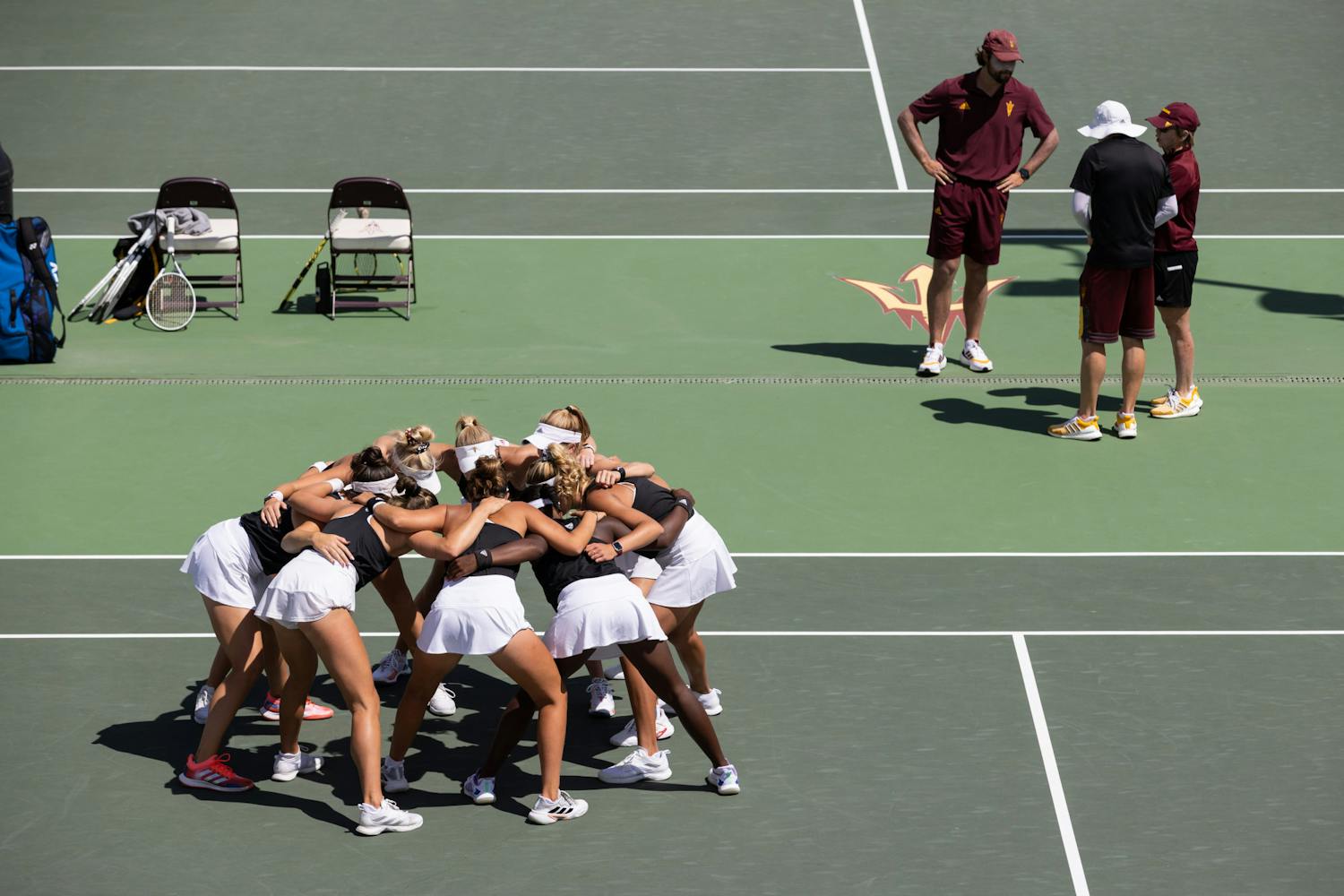While all first-year students are encouraged to live on campus and are required to purchase some type of meal plan if they do so, not all students are satisfied with the dining options they are offered.
For some students, the reduced residential dining hall hours on weekends are suboptimal for maintaining a healthy eating schedule.
The restrictive dining hall hours on weekends, both in the morning and at night, do not support consistent or healthy eating schedules for ASU students.
Of the Tempe residential dining halls, the Hassayampa Dining Center, Barrett Dining Center, Pitchforks, and Manzanita are all open from 7 a.m. to 9 p.m. Monday through Thursday, close at 7 p.m. on Friday and do not open until 11 a.m. on Saturday and Sunday.
Tooker House Dining is the exception to this trend, as it opens half an hour earlier on weekdays and an hour earlier than the rest of the dining halls on weekends.
The majority of other dining options on campus have reduced hours or are closed altogether on weekends, even further limiting the dining options for on-campus students. In the Memorial Union, a number of M&G options are closed entirely on Sunday, including Chick-fil-A, Jamba Juice and Pei Wei.
Sonia Salam, Sun Devil Dining senior director of marketing for Aramark, the company that provides food service to residential dining halls, on-campus restaurants and convenience stores, said the dining hall hours were determined by industry trends.
“Residential dining hours are determined using industry trends, class schedules, historical dining behaviors of students as well as student feedback from surveys such as DiningStyles and Your Voice Counts,” Salam said. “Sun Devil Dining options are available to students from 6:30 a.m. to 2 a.m. at the Tempe Campus.”
While this is technically true, the only dining options available at 6:30 a.m. are Starbucks and the Tooker House dining hall Monday through Friday. The only options open until 2 a.m. in Tempe are the Tooker House and Hassayampa Provisions On Demand Markets and Tooker's late-night grill.
The early closure of dining halls from Friday through Sunday can also present a challenge for students who typically eat dinner at a later hour or have no other option than to do so. And, students who have a class that starts early in the morning or ends later at night may miss a meal altogether for their classes.
In addition, although there is food available during reasonable hours, the options presented are not always practical for student health.
Sarah Martinelli, a clinical assistant professor at ASU’s School of Nutrition and Health Promotion, said that students are less likely to make healthy choices if they go without food for extended periods of time.
“For a lot of students, (the meal plan) is their main source,” Martinelli said. “The problem is you would tend to overeat if you go a long period of time between meals. So, if a student eats at 7 in the morning before they go to class and they don’t eat again until 7 p.m., the likelihood of them making a healthy choice at 7 p.m. is probably pretty low because they’re starving.”
In a pinch, students have to resort to other methods of getting food, such as using a meal exchange for the pre-made sandwiches and an assortment of snacks available at the P.O.D. stores on campus.
Brianna Orrill, a freshman studying astrobiology, said that dining hall hours are not conducive for students like herself who have jobs.
“The dining hall needs to be open earlier than 11 a.m. (on weekends) for students who work,” Orrill said. “I usually just skip breakfast on those days.”
Many students also wake up earlier than 11 a.m., and when there are no other on-campus restaurants open on Sundays, they have no choice but to go hungry or spend money on something else.
While spending an occasional few extra dollars when students cannot get to the dining hall does not seem like a huge financial burden, they should not have to worry about an extra expense outside of the meal plan they're required to purchase.
Although the availability of food has increased for students, ASU still has a long way to go regarding healthy eating outside dining hall hours.
“It is much more of a challenge to get healthy items in corner store or convenience store environments versus a regular grocery store," Martinelli said. "If their only options are the P.O.D. or their meal plan, they probably would have less access (to healthy food), especially if they don’t have a car.”
Residential dining halls represent a tradeoff between economic optimization and student health. While it may not be financially possible or sustainable to keep the dining hall open for longer periods of time on weekends, the closures are at the cost of a healthy eating schedule.
If dining hall hours cannot be extended, students should have access to healthy options outside of residential dining halls during more accommodating hours.
Reach the columnist at kalbal@asu.edu or follow @KarishmaAlbal on Twitter.
Editor’s note: The opinions presented in this column are the author’s and do not imply any endorsement from The State Press or its editors.
Want to join the conversation? Send an email to opiniondesk.statepress@gmail.com. Keep letters under 500 words and be sure to include your university affiliation. Anonymity will not be granted.
Like The State Press on Facebook and follow @statepress on Twitter.




